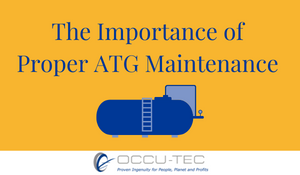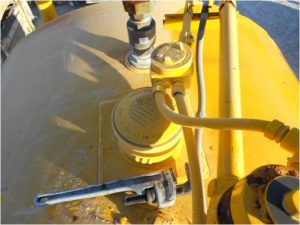1 min read
The Importance of Proper ATG Maintenance
 Jason Swan, Director of Energy Systems
:
Feb 25, 2022
Jason Swan, Director of Energy Systems
:
Feb 25, 2022

Maintaining the automatic tank gauge (ATG) of both above and underground fuel storage tanks is not something to put on the back burner. In an emergency, your business depends on the fuel to be in the right condition to perform. Additionally, the regulatory repercussions can be costly. Here are some reasons to trust your ATG to a professional:
-
The tank monitor may be silent but still in alarm.
This can occur when the alarm condition initially begins; an employee may press the silence button and then never pursue investigating what the alarm condition is about. The alarm condition remains present but never really gets attention.
-
The tank monitor leak history log may not be sufficient to satisfy the local regulator/State for past leak tests.
This can happen when your ATG console stores any given leak test into a historical leak test log, and it may replace another passing test from the same month. This could result in more than 30 days between passing tests documented by the leak test log. In addition, the leak history log may not contain enough information about the type of leak test performed or data from the testing event. Therefore, the State may not accept the condensed printing format provided from a leak history log.
-
You can have printouts of passing 0.2gal/hr leak testing from your ATG, but they may not be valid tests and satisfy your local regulator/State.
This can occur when your tank volume at the time of a passing test printed from the ATG console is actually below its valid testing threshold. Each brand/model of ATG was certified by a national 3rd party workgroup who certified your ATG for valid leak testing performance. This group determines and approves not only if your ATG can detect leaks with a minimum of 95% statistical confidence but also what parameters they found it could perform those leak tests. An example might be a Veeder Root TL3XX series console that must have at least 30" of fuel in a 96" diameter tank to be considered a valid test. Some local regulators/States are savvy enough to understand this dynamic and may reject some of your leak history records for this reason.




